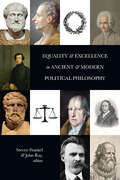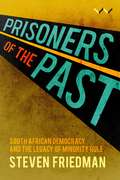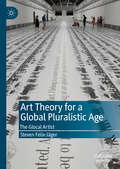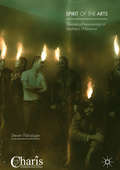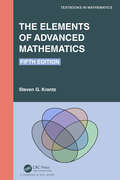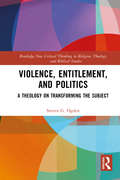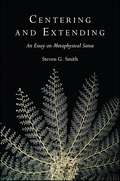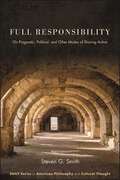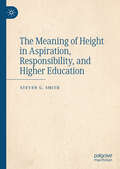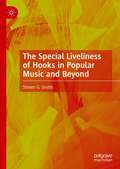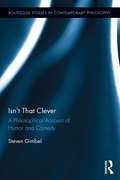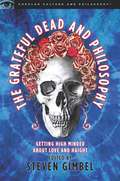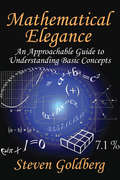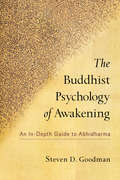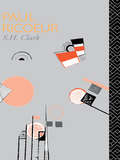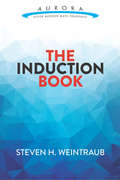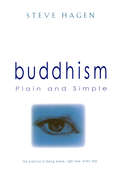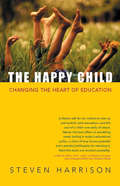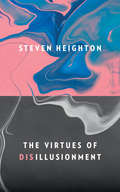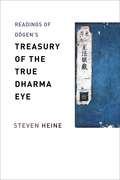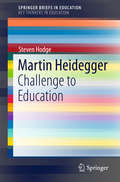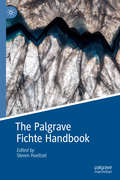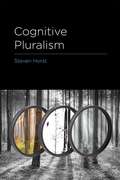- Table View
- List View
Locke, Science, and Politics
by Steven FordeIn this groundbreaking book, Steven Forde argues that John Locke's devotion to modern science deeply shaped his moral and political philosophy. Beginning with an account of the classical approach to natural and moral philosophy, and of the medieval scholasticism that took these forward into early modernity, Forde explores why the modern scientific project of Francis Bacon, Pierre Gassendi, Robert Boyle and others required the rejection of the classical approach. Locke fully subscribed to this rejection, and took it upon himself to provide a foundation for a compatible morality and politics. Forde shows that Locke's theory of moral 'mixed modes' owes much to Pufendorf, and is tailored to accommodate science. The theory requires a divine legislator, which in turn makes natural law the foundation of morality, rather than individual natural right. Forde shows the ways that Locke's approach modified his individualism, and colored his philosophy of property, politics and education.
Equality and Excellence in Ancient and Modern Political Philosophy
by Steven Frankel; John RayIs it possible to reconcile human excellence with a dedication to equality? Equality and Excellence in Ancient and Modern Political Philosophy explores the meaning, conflict, and potential resolution of the tension between human excellence and equality in the thought of philosophers from Greek antiquity to modern times. Each chapter is devoted to the thought of a particular thinker, and the chapters are arranged chronologically. Interpretations offered here rely on close readings of the major texts by critically important thinkers from Plato, Aristotle and Xenophon in antiquity to a broad range of modern thinkers from Spinoza to Rawls.
Prisoners of the Past: South African democracy and the legacy of minority rule
by Steven FriedmanBuilding on the work of economic historian Douglass North and Ugandan political scholar Mahmood Mamdani, Friedman argues that the difficulties besetting South African democracy are legacies of the past, not products of the post-1994 eraSouth Africa’s democracy is often seen as a story of bright beginnings gone astray, a pattern said to be common to Africa. The negotiated settlement of 1994, it is claimed, ended racial domination and created the foundation for a prosperous democracy – but greedy politicians betrayed the promise of a new society. In Prisoners of the Past Steven Friedman astutely argues that this misreads the nature of contemporary South Africa. Building on the work of the economic historian Douglass North and the political thinker Mahmood Mamdani, Friedman shows that South African democracy’s difficulties are legacies of the pre-1994 past. The settlement which ushered in majority rule left intact core features of the apartheid economy and society. The economy continues to exclude millions from its benefits, while racial hierarchies have proved stubborn: apartheid is discredited, but the values of the pre-1948 colonial era, the period of British colonization, still dominate. Thus South Africa’s democracy supports free elections, civil liberties and the rule of law, but also continues past patterns of exclusion and domination. Friedman reasons that this ‘path dependence’ is not, as is often claimed, the result of constitutional compromises in 1994 that left domination untouched. This bargain was flawed because it brought not too much compromise, but too little. Compromises extended political citizenship to all but there were no similar bargains on economic and cultural change. Using the work of the radical sociologist Harold Wolpe, Friedman shows that only negotiations on a new economy and society can free South Africans from the prison of the past.
Art Theory for a Global Pluralistic Age: The Glocal Artist
by Steven Félix-JägerThis book extends a theory of art that addresses the present era’s shift towards global pluralism. By focusing on extrinsic rather than intrinsic qualities of art, this book helps viewers evaluate art across cultural boundaries. Art can be universally classified by an evaluation of its guiding narrative, and can be understood and judged through hermeneutical methods. Since artists engage culture through various local, transnational, and emerging global narratives, it is difficult to decipher what standards are used for evaluation, and which authoritative body evaluates the work. This book implements a narrative-hermeneutical approach to properly classify an artwork and establish its meaning and value.
Spirit of the Arts: Towards a Pneumatological Aesthetics of Renewal (Christianity and Renewal - Interdisciplinary Studies)
by Steven Félix-JägerA contribution to the field of theological aesthetics, this book explores the arts in and around the Pentecostal and charismatic renewal movements. It proposes a pneumatological model for creativity and the arts, and discusses different art forms from the perspective of that model. Pentecostals and other charismatic Christians have not sufficiently worked out matters of aesthetics, or teased out the great religious possibilities of engaging with the arts. With the flourishing of Pentecostal culture comes the potential for an equally flourishing artistic life. As this book demonstrates, renewal movements have participated in the arts but have not systematized their findings in ways that express their theological commitments—until now. The book examines how to approach art in ways that are communal, dialogical, and theologically cultivating.
The Elements of Advanced Mathematics (Textbooks in Mathematics)
by Steven G. KrantzThis book has enjoyed considerable use and appreciation during its first four editions. With hundreds of students having learned out of early editions, the author continues to find ways to modernize and maintain a unique presentation. What sets the book apart is the excellent writing style, exposition, and unique and thorough sets of exercises. This edition offers a more instructive preface to assist instructors on developing the course they prefer. The prerequisites are more explicit and provide a roadmap for the course. Sample syllabi are included. As would be expected in a fifth edition, the overall content and structure of the book are sound. This new edition offers a more organized treatment of axiomatics. Throughout the book, there is a more careful and detailed treatment of the axioms of set theory. The rules of inference are more carefully elucidated. Additional new features include: An emphasis on the art of proof. Enhanced number theory chapter presents some easily accessible but still-unsolved problems. These include the Goldbach conjecture, the twin prime conjecture, and so forth. The discussion of equivalence relations is revised to present reflexivity, symmetry, and transitivity before we define equivalence relations. The discussion of the RSA cryptosystem in Chapter 8 is expanded. The author introduces groups much earlier. Coverage of group theory, formerly in Chapter 11, has been moved up; this is an incisive example of an axiomatic theory. Recognizing new ideas, the author has enhanced the overall presentation to create a fifth edition of this classic and widely-used textbook.
Violence, Entitlement, and Politics: A Theology on Transforming the Subject (Routledge New Critical Thinking in Religion, Theology and Biblical Studies)
by Steven G. OgdenThis book is an exercise in political theology, exploring the problem of gender-based violence by focusing on violent male subjects and the issue of entitlement. It addresses gender-based violence in familial and military settings before engaging with a wider political context. The chapters draw on sources ranging from Michel Foucault, Judith Butler, and Étienne Balibar to Rowan Williams and Elisabeth Schüssler Fiorenza. Entitlement is theorized and interpreted as a gender pattern, predisposing subjects toward controlling behaviour and/or violent actions. Steven Ogden develops a theology of transformation, stressing immanence. He examines entitled subjects, predisposed to violence, where transformation requires a limit-experience that wrenches the subject from itself. The book also reflects on today’s pervasive strongman politics, where political rationalities foster proprietorial thinking and entitlement gender patterns, and how theology is called to develop counter-discourses and counter-practices.
Centering and Extending: An Essay on Metaphysical Sense
by Steven G. SmithIn Centering and Extending, Steven G. Smith retrieves and refashions some of the best ideas of classical and early modern metaphysics to support insight into the natures of mental and material beings and their relations. Avoiding what he critiques as distortive paths of idealism, materialism, repressive monism, and overly permissive pluralism, Smith builds his framework on centering and extending as universal principles of formation. Identifying the basic consistency of being with these principles in symmetrical partnership enables a naturalist process view that, unlike Whitehead's, does not overbalance toward the subjective and teleological and, unlike Deleuze and Guattari's, does not overbalance toward the material and chaotic. This view supports useful conceptions of mind and matter, form and energy, reason and cause, and a layered world order without relying on a blind concept of supervenience or emergence. It also respects and reinforces a division of roles between metaphysical sense-making and spiritual determinations of meaningfulness.
Full Responsibility: On Pragmatic, Political, and Other Modes of Sharing Action (SUNY series in American Philosophy and Cultural Thought)
by Steven G. SmithStarting with an appreciation of the practical realizations that move us to assume responsibility, Full Responsibility develops an ontologically-grounded model of different forms of responsibility and the challenges and fulfillments found in each. Special attention is given to pragmatic and political responsibility, highlighting considerations for right action that are not accurately recognized by universalizing ethics. Issues in abortion decisions, providing for responsible work, and immigration and refugee policy are examined in the complex frame of political responsibility. Moving past the standoff between political moralism and political realism, Steven G. Smith offers an account of political responsibility as an unstable combination of all modes of responsibility. The book concludes by reviewing different approaches to the impossible but compelling ideal of full responsibility. The distinctive natures of ethical, historical, and religious forms of responsibility are discussed in appendices.
The Meaning of Height in Aspiration, Responsibility, and Higher Education
by Steven G. SmithThe Meaning of Height takes seriously the traditional figure of “higher life” for intrinsically preferable manners of living. Reworking the Platonic model of ascent to the ideal and descent to responsible engagement with the world, The Meaning of Height lays out concrete possible itineraries of reaching (upward to new acquisitions of personal capacity) and righting (downward from prompts for good order), showing connections between individual and social fulfillment. By focusing on our diversely demanding encounters with the interesting, the important, and the transcendent, the book strikes a counterpoint to the commonly homogenized conception of personal “happiness.” It also counters illiberal views of higher education with a Humboldtian vitality argument for a meaningfully “high” higher education geared to full development of human faculties, a level of education to which the disciplines of philosophy and religious studies make essential contributions. The book concludes by considering the essential role of this sort of higher education in democratic societies.
The Special Liveliness of Hooks in Popular Music and Beyond
by Steven G. SmithThis book illuminates the aesthetically underrated meaningfulness of particular elements in works of art and aesthetic experiences generally. Beginning from the idea of "hooks" in popular song, the book identifies experiences of special liveliness that are of enduring interest, supporting contemplation and probing discussion. When hooks are placed in the foreground of aesthetic experience, so is an enthusiastic “grabbing back” by the experiencer who forms a quasi-personal bond with the beloved singular moment and is probably inclined to share this still-evolving realization of value with others. This book presents numerous models of enthusiastic “grabbing back” that are art-critically motivated to explain how hooks achieve their effects and philosophically motivated to discover how hooks and hook appreciation contribute to a more ideally desirable life. Framing hook appreciation with a defensible general model of aesthetic experience, this book gives an unprecedented demonstration of the substantial aesthetic and philosophical interest of hook-centered inquiry.
Isn’t that Clever: A Philosophical Account of Humor and Comedy (Routledge Studies in Contemporary Philosophy)
by Steven GimbelIsn’t That Clever provides a new account of the nature of humor – the cleverness account – according to which humor is intentional conspicuous acts of playful cleverness. By defining humor in this way, answers can be found to longstanding questions about humor ethics (Are there jokes that are wrong to tell? Are there jokes that can only be told by certain people?) and humor aesthetics (What makes for a good joke? Is humor subjective?). In addition to humor in general, Isn’t That Clever asks questions about comedy as an art form such as whether there are limits to what can be said in dealing with a heckler and how do we determine whether one comedian has stolen jokes from another.
The Grateful Dead and Philosophy: Getting High-Minded about Love and Haight
by Steven GimbelTwenty philosophical essays about the Grateful Dead phenomenon evaluates the band, its lyrics, and its influence from a variety of ancient and modern perspectives to consider how it fits into broader trends of American thought.
Mathematical Elegance: An Approachable Guide to Understanding Basic Concepts
by Steven GoldbergThe heart of mathematics is its elegance; the way it all fits together. Unfortunately, its beauty often eludes the vast majority of people who are intimidated by fear of the difficulty of numbers. Mathematical Elegance remedies this. Using hundreds of examples, the author presents a view of the mathematical landscape that is both accessible and fascinating. At a time of concern that American youth are bored by math, there is renewed interest in improving math skills. Mathematical Elegance stimulates students, along with those already experienced in the discipline, to explore some of the unexpected pleasures of quantitative thinking. Invoking mathematical proofs famous for their simplicity and brainteasers that are fun and illuminating, the author leaves readers feeling exuberant-as well as convinced that their IQs have been raised by ten points. A host of anecdotes about well-known mathematicians humanize and provide new insights into their lofty subjects. Recalling such classic works as Lewis Carroll's Introduction to Logic and A Mathematician Reads the Newspaper by John Allen Paulos, Mathematical Elegance will energize and delight a wide audience, ranging from intellectually curious students to the enthusiastic general reader.
The Buddhist Psychology of Awakening: An In-Depth Guide to Abhidharma
by Steven GoodmanA modern introduction to traditional Buddhist psychology This practical overview of Buddhist psychology outlines step-by-step methods for examining the source of our habitual tendencies and hangups. In order to truly free ourselves from perpetuating patterns of suffering, the Buddha offered a clear system for understanding our psychological dispositions, processes, fixations, and challenges--a system known as the Abhidharma. This tradition has been studied by Buddhists for over two millennia. Professor Steven Goodman has taught on the Abhidharma in both universities and Buddhist retreats for over twenty years, making these traditional teachings accessible for a modern readership for the first time. Goodman explains how becoming aware of our mental patterns can liberate us from cycles of emotional pain and shows how the Abhidharma can be applied to meditation practice through exercises of observation and reflection. This is the go-to manual for anyone interested in the world of Buddhist psychology.
Paul Ricoeur (Critics of the Twentieth Century)
by Steven H. Clark"First Published in 1990, Routledge is an imprint of Taylor & Francis, an informa company."
The Induction Book
by Steven H. WeintraubMathematical induction — along with its equivalents, complete induction and well-ordering, and its immediate consequence, the pigeonhole principle — constitute essential proof techniques. Every mathematician is familiar with mathematical induction, and every student of mathematics requires a grasp of its concepts. This volume provides an introduction and a thorough exposure to these proof techniques. Geared toward students of mathematics at all levels, the text is particularly suitable for courses in mathematical induction, theorem-proving, and problem-solving. The treatment begins with both intuitive and formal explanations of mathematical induction and its equivalents. The next chapter presents many problems consisting of results to be proved by induction, with solutions omitted to enable instructors to assign them to students. Problems vary in difficulty; the majority of them require little background, and the most advanced involve calculus or linear algebra. The final chapter features proofs too complicated for students to find on their own, some of which are famous theorems by well-known mathematicians. For these beautiful and important theorems, the author provides expositions and proofs. The text concludes with a helpful Appendix providing the logical equivalence of the various forms of induction.
Buddhism Plain and Simple
by Steven HagenBuddhism Plain and Simple offers a clear, straightforward treatise on Buddhism in general and on awareness in particular.When Buddha was asked to sum up his teaching in a single world, he said, "Awareness." The Buddha taught how to see directly into the nature of experience. His observations and insights are plain, practical, and down-to-earth, and they deal exclusively with the present.Longtime teacher of Buddhism Steve Hagan presents the Buddha's uncluttered, original teachings in everyday, accessible language unencumbered by religious ritual, tradition, or belief.
Buddhism Plain and Simple
by Steven HagenBuddhism Plain and Simple offers a clear, straightforward treatise on Buddhism in general and on awareness in particular.When Buddha was asked to sum up his teaching in a single world, he said, "Awareness." The Buddha taught how to see directly into the nature of experience. His observations and insights are plain, practical, and down-to-earth, and they deal exclusively with the present.Longtime teacher of Buddhism Steve Hagan presents the Buddha's uncluttered, original teachings in everyday, accessible language unencumbered by religious ritual, tradition, or belief.
The Happy Child: Changing the Heart of Education
by Steven HarrisonThe author of The Shimmering World proposes allowing children to follow their own educational path, thus enabling their curiosity to fuel their learning. In this thought-provoking new book, bestselling author Steven Harrison ventures far outside the box of traditional thinking about education. His radical proposal? Children naturally want to learn, he asserts, so let them direct their own education in democratic learning communities where they can interact seamlessly with their neighborhoods, their towns, and the world at large. Most learning systems apply external motivation through grades, rankings, teacher direction, and approval. The Happy Child suggests that a self-motivated child who is interdependent within a community can develop the full human potential to live a creative and fulfilling life. Harrison focuses on the integration of the whole child, the learning environment, and the non-coercive spirit of curiosity-driven education. Part social-critic, part humanistic visionary, Harrison not only focuses on a reorientation of education, but the possibility of rethinking our families, communities and workplaces, and ultimately what gives our children, and all of us, real happiness. Harrison adds his voice to those of A. S. Neil, John Holt, and John Gatto, all who believe that contemporary schools can never be reformed sufficiently, but must be abandoned entirely for something new and vital to emerge. Praise for The Happy Child &“A clarion call for our culture to wise up and re-think what education—and the soul of a child—are really all about. Steven Harrison offers us something sorely lacking in today&’s educational policy: a vision of true human potential and a practical philosophy for attaining it. Read this book and envision possibility.&” —Jane M. Healy, Ph, author of Failure to Connect: How Computers Affect Our Children&’s Minds &“Harrison's hard-biting social critique of the plight children and education are in should wake us up to our atrocious treatment of our young, that we might actually address their critical needs rather than simply ignoring them as usual.&” —Joseph Chilton Pearce, author of The Crack in the Cosmic Egg &“Such a nobly simple idea, that the true purpose of education should be happiness, and so clearly reasoned.&” —Chris Mercogliano, author of Making It Up As We Go Along
The Virtues of Disillusionment
by Steven HeightonMost people go through life chasing illusions of success, fame, wealth, happiness, and few things are more painful than the reality-revealing loss of an illusion. But if illusions are negative, why is the opposite, being disillusioned, also negative? In this essay based on his inaugural writer-in-residence lecture at Athabasca University, internationally acclaimed writer Steven Heighton mathematically evaluates the paradox of disillusionment and the negative aspects of hope. Drawing on writers such as Herman Melville, Leonard Cohen, Kate Chopin, and Thich Nhat Hanh, Heighton considers the influence of illusions on creativity, art, and society. This meditation on language and philosophy reveals the virtues of being disillusioned and, perhaps, the path to freedom.
Readings of Dōgen's "Treasury of the True Dharma Eye" (Columbia Readings of Buddhist Literature)
by Steven HeineThe Treasury of the True Dharma Eye (Shōbōgenzō) is the masterwork of Dōgen (1200–1253), founder of the Sōtō Zen Buddhist sect in Kamakura-era Japan. It is one of the most important Zen Buddhist collections, composed during a period of remarkable religious diversity and experimentation. The text is complex and compelling, famed for its eloquent yet perplexing manner of expressing the core precepts of Zen teachings and practice.This book is a comprehensive introduction to this essential Zen text, offering a textual, historical, literary, and philosophical examination of Dōgen’s treatise. Steven Heine explores the religious and cultural context in which the Treasury was composed and provides a detailed study of the various versions of the medieval text that have been compiled over the centuries. He includes nuanced readings of Dōgen’s use of inventive rhetorical flourishes and the range of East Asian Buddhist textual and cultural influences that shaped the work. Heine explicates the philosophical implications of Dōgen’s views on contemplative experience and attaining and sustaining enlightenment, showing the depth of his distinctive understanding of spiritual awakening. Readings of Dōgen’s Treasury of the True Dharma Eye will give students and other readers a full understanding of this fundamental work of world religious literature.
Martin Heidegger
by Steven HodgeThis book sets out to explore the challenge to education contained in Heidegger's work. His direct remarks about education are examined and placed in the broader context of his philosophy to create an account of Heidegger's challenge. Martin Heidegger is an undisputed giant of 20th Century thought. During his long academic career he made decisive contributions to philosophy, influencing a host of thinkers in the process including Arendt, Gadamer, Sartre, Merleau-Ponty, Derrida and Foucault. Heidegger inquired into the deepest levels of human being and its social, natural and technological contexts. Although he did not develop a systematic philosophy of education, his philosophical insights and occasional remarks about education make him an interesting and troubling figure for education. Heidegger is of interest to education for his contributions to our understanding of human being and its environment. Heidegger's insights are troubling, too, for many of the assumptions of education. His critiques of humanism and the modern instrumental mindset in particular have significant implications. The work of scholars who have expanded on Heidegger's remarks and those who have been influenced by his philosophy is also surveyed to fill out the examination. A vision of education emerges in which teachers and learners awaken to the deadening influences around them and become attuned to the openness of being.
The Palgrave Fichte Handbook (Palgrave Handbooks in German Idealism)
by Steven HoeltzelThis Handbook provides a comprehensive single-volume treatment of Fichte’s philosophy. In addition to offering new researchers an authoritative introduction and orientation to Fichtean thought, the volume also surveys the main scholarly and philosophical controversies regarding Fichtean interpretation, and defends a range of philosophical theses in a way that advances the scholarly discussion. Fichte is the first major philosopher in the post-Kantian tradition and the first of the great German Idealists, but he was no mere epigone of Kant or precursor to Hegel. His work speaks powerfully and originally to a wide range of issues of enduring concern, and his many innovations importantly anticipate major developments, including absolute idealism, phenomenology, and existentialism. He is therefore not only a path-breaking thinker but also a pivotal figure in Western intellectual history. Wide-ranging, well-organised and timely, this key volume makes Fichte’s work both accessible and relevant. It is essential reading for scholars, graduate researchers and advanced students interested in Fichte, German Idealism, and the history of nineteenth-century philosophy in the West.
Cognitive Pluralism
by Steven HorstPhilosophers have traditionally assumed that the basic units of knowledge and understanding are concepts, beliefs, and argumentative inferences. In Cognitive Pluralism, Steven Horst proposes that another sort of unit -- a mental model of a content domain -- is the fundamental unit of understanding. He argues that understanding comes not in word-sized concepts, sentence-sized beliefs, or argument-sized reasoning but in the form of idealized models and in domain-sized chunks. He argues further that this idea of "cognitive pluralism" -- the claim that we understand the world through many such models of a variety of content domains -- sheds light on a number of problems in philosophy.Horst first presents the "standard view" of cognitive architecture assumed in mainstream epistemology, semantics, truth theory, and theory of reasoning. He then explains the notion of a mental model as an internal surrogate that mirrors features of its target domain, and puts it in the context of ideas in psychology, philosophy of science, artificial intelligence, and theoretical cognitive science. Finally, he argues that the cognitive pluralist view not only helps to explain puzzling disunities of knowledge but also raises doubts about the feasibility of attempts to "unify" the sciences; presents a model-based account of intuitive judgments; and contends that cognitive pluralism favors a reliabilist epistemology and a "molecularist" semantics. Horst suggests that cognitive pluralism allows us to view rival epistemological and semantic theories not as direct competitors but as complementary accounts, each an idealized model of different dimensions of evaluation.

